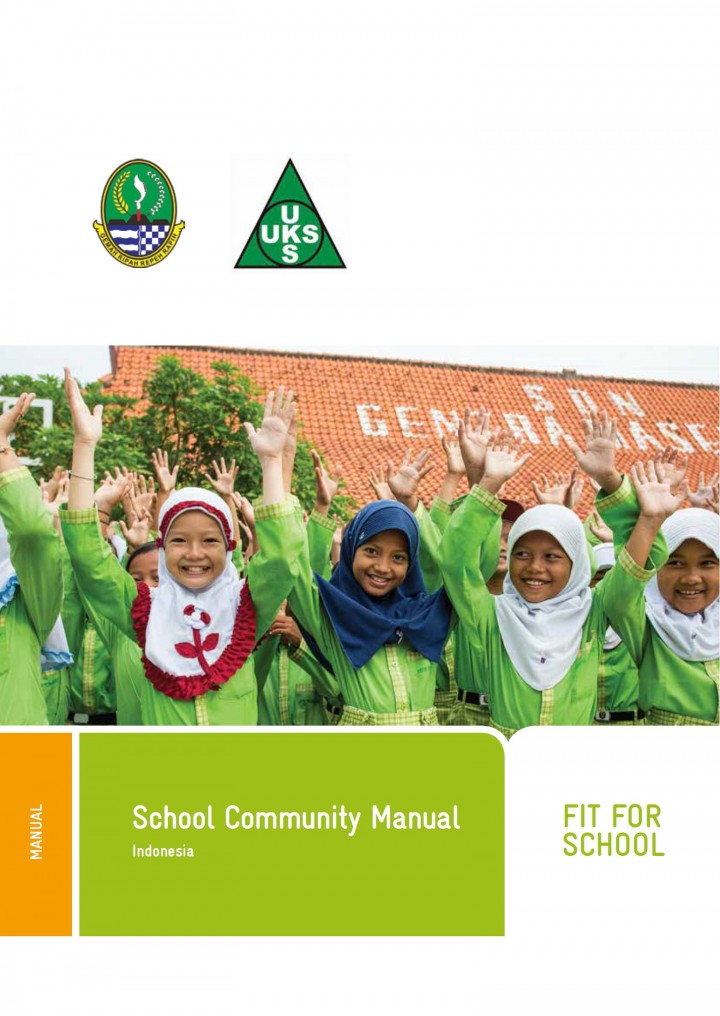School Community Manual Indonesia (formerly Manual for teachers), Fit for School GIZ (2014)
Establishing schools as enabling places where children can thrive and learn – this is the objective of the Fit for School Approach, an innovative and integrated school health concept that was first developed in the Philippines and has also been introduced in other Southeast Asian countries, namely Cambodia, Indonesia and Laos.
The Fit for School Approach is based on three core principles: Simplicity, scalability and sustainability. A school health program and its interventions must be based on best possible evidence, should be costeffective and packaged to facilitate implementation in the school context with little extra effort. Capitalizing existing structures and resources as well as following a modular setup are essential elements for scalability. To ensure sustainability, long-term allocation of government manpower and financial resources is crucial. A close partnership with the parents and local community is imperative in maximizing the positive program effects.
This manual has evolved from an earlier set of manuals developed in the Philippines for the Implementation of the Essential Health Care Program that is still supported by GIZ and the local NGO Fit for School Inc. The first manual from 2009 was called 'Manual for teachers' which is also provided for download. More information can be retrieved from http://www.fitforschool.ph/ and http://www.giz.de/en/worldwide/14407.html
External Website(s)
Bibliographic information
GIZ (2014). School Community Manual Indonesia (formerly Manual for teachers), Fit for School GIZ Fit for School, Philippines, ISBN 978-3-95645-250-5
Filter / Tags
Sustainable WASH in institutions and gender equality (WG7)SchoolsEducatorsEnglish
External links
Downloads

Published in: 2014
Pages: 35
Publisher:
GIZ Fit for School, Philippines, ISBN 978-3-95645-250-5
Author(s):
GIZ
Uploaded by:
GIZ
Deutsche Gesellschaft für Internationale Zusammenarbeit (GIZ) GmbH
Location of library entry:
